‘I think the city is falling apart’: Leicester braces for a make-or-break budget
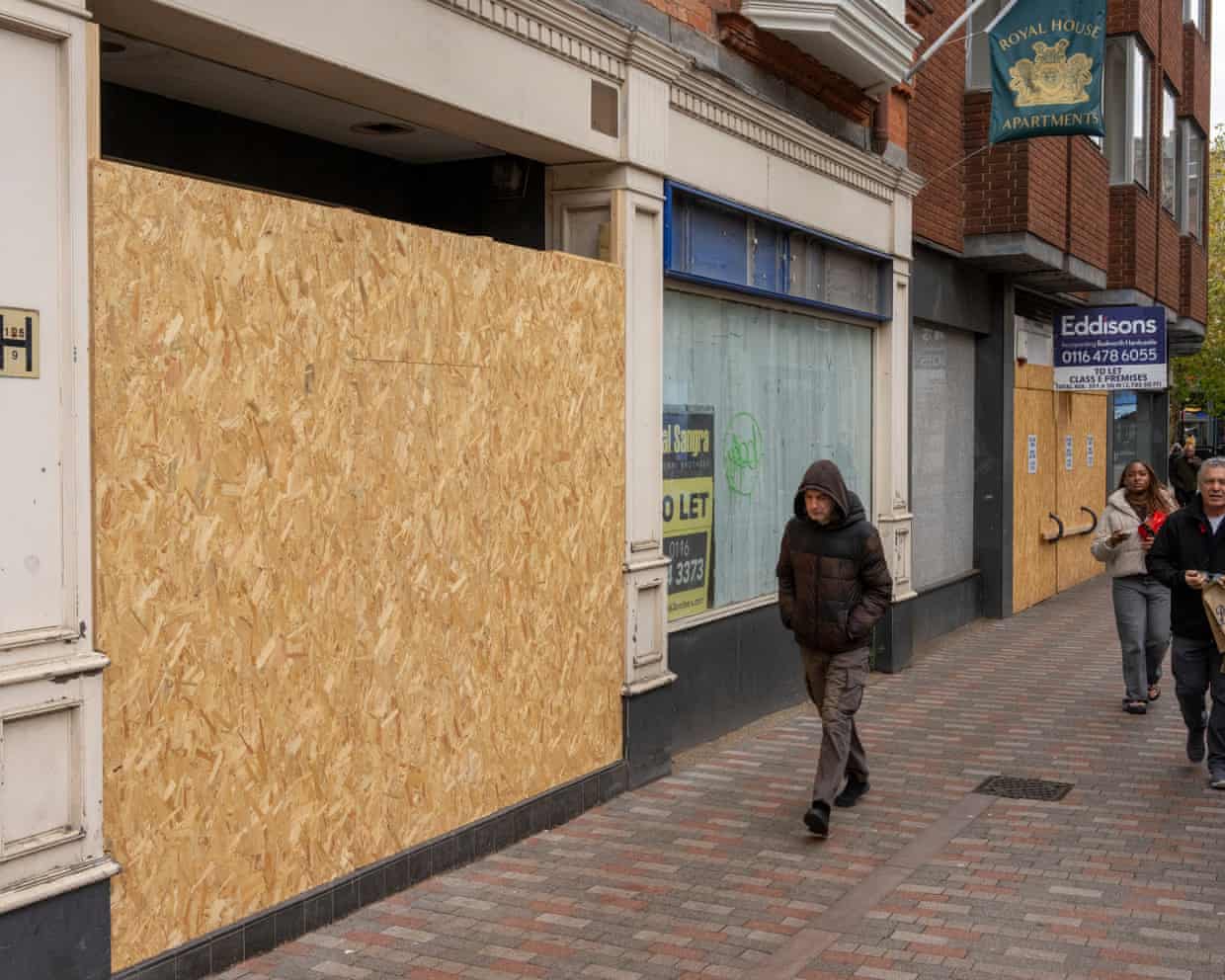
Anika* has a full-time job, but says she never eats in local cafes or restaurants and takes her lunch to work.The cost of living is too high for her to buy more than the basics of life.“Everything is so expensive.I cry, and ask myself what more can I do to make things better,” she says.The charity worker lives in Leicester, the local authority where people have the least spare cash after paying taxes, property ownership costs and pensions contributions.
It’s not unusual for four families to share a house, one to each room, says Zinthiya Ganeshpanchan, boss of the anti-poverty charity she started 16 years ago, the Zinthiya Trust.Speaking from a temporary office in the city centre, she says: “It is a difficult situation for many people.Money problems and the emotional problems from cramped living arrangements can lead to abusive relationships.”With 18 emergency rooms across Leicester for abuse victims made homeless, she is always busy, stepping into the void left by cuts to council services.“I think the city is falling apart,” she says.
UK inflation may have fallen from its 2022 peak of 11.1% in 2022 to 3.8% in September, but prices are still more than 20% higher than they were three years ago.Struggling low and middle income earners are now fervently hoping that Rachel Reeves will deliver on hints she will use this month’s budget to help “bear down on” rising costs.In the meantime the cost of living crisis rumbles on, with figures from the energy regulator Ofgem showing a record rise in UK household gas and electricity debt in the first half of this year to almost £4.
5bn,Leicester council continues to run a unit dedicated to helping ease energy bills and tackle the poor health outcomes that follow from a lack of heating and low quality housing,“We have a lot of Victorian housing with poor insulation and a large number of families on low incomes, which meant we had a huge increase in fuel poverty,That hasn’t gone away,” says Rob Howard, the city’s head of public health,Persistently low pay has pushed the city to the bottom of UK rankings for annual gross disposable household income (GDHI) – just £16,067 per head – or about £1,340 on average each month to cover all expenditure including rent, energy and food bills.
London has the highest GDHI per head, according to the latest available official figures, which cover 2023.On average, each Londoner had £35,361 available a year to spend or save, with those in the City of London typically boasting £129,429.Rachel Granger, an economics professor at De Montford University, says that 20% of Leicester ranks as deprived – twice the national average.“There is almost full employment, but lots of very low wage work on offer.The average household wealth is also shockingly low,” she says.
“We are worried that if the budget doesn’t go our way that places like Leicester won’t get any investment,” she adds.There are signs that the chancellor will take notice of the plight of Britain’s poor families and their children in the 26 November budget.Reeves could tackle rises in the “administered prices” the government helps regulate, with reports this week suggesting she could use a lower measure of inflation to slow rail fare increases.The chancellor is also expected to lift the two-child cap on welfare benefits and inject some cash into the free school meals programme.The minimum wage, which was worth just over 40% of the average wage when it started more than two decades ago is now worth almost 60%, and will rise significantly next April, if rumours spreading from inside Downing Street are to be believed.
Reeves is expected to say that she will protect investment spending, fund infrastructure development and support schemes to improve skills.Leicester, however, could miss out on many of the elements aimed at stimulating growth.An upgrade to the East Midlands rail line from London to Sheffield stops just short of the city.It means the electrification that brings with it higher speeds and greater reliability will not reach areas that would arguably benefit the most.Sign up to First EditionOur morning email breaks down the key stories of the day, telling you what’s happening and why it mattersafter newsletter promotionLeicester’s industrial base is also weak for peculiarly local reasons.
Steeped in textile history, local firms boasted of being suppliers of hosiery to major retailers like Marks & Spencer as well as globally,Those industries have faded away and the council relies heavily on thousands of small and medium-sized enterprises to take their place,A survey of local businesses shows the supermarket sandwich supplier Samworth’s is one of the biggest employers, with more than 5,000 staff,Elected mayor Peter Soulsby blames the city’s low average incomes on a boundary drawn tightly in 1972 that means its wealthier suburbs are part of the surrounding county, eliminating them from the calculation of GDHI and dragging down the city’s average spending power,Regardless, he wants to shift the city off its lowly spot in the rankings and is therefore seeking to recoup some of the funding lost in the austerity years.
Speaking in the boardroom of the art deco City Hall, he says: “Austerity hit cities like Leicester very hard.“We lost Sure Start, our youth provision, some of our public health service.And all the time there has been an ever-increasing demand on social care for adults and children.“About 70% of our total spend is on adult and social care, which means public health is squeezed from both ends.”But local authority funding is likely to remain tight, whatever happens in the budget, limiting what councils can do to support families that have hit rock bottom.
A group of second-tier English cities that includes Sunderland, Gloucester, Hull and Southampton said in a report last week that the cost of rising homelessness and placing poor families in social housing was draining their budgets at an alarming rate, forcing them to revive fire sales of councils assets to balance the books.Like Leicester, their ability to come to the aid of households affected by the growing number of unemployed people and the low incomes of those in work will be heavily circumscribed.Ganeshpanchan says that clients had severe money problems when she started the charity.“But their issues are much more complex these days, especially the debts they might have with the Department for Work and Pensions, the council, energy companies.”She says between 60% and 70% of the people the charity helps are in work.
“Many are doing two or three jobs just to pay their bills.And those in work are given much less support than when they are on benefits.It makes life a struggle,” she adds.Simon Jenner, director of the Leicester Business Improvement District, says the city’s creative quarter and buoyant hospitality sector provides people with good jobs: “The council is putting a lot of effort into making the city a place to live as well as work.However, he concedes it’s not plain sailing.
“Our restaurants are getting better all the time, but the economic metrics say things are getting worse.”*Names have been changed
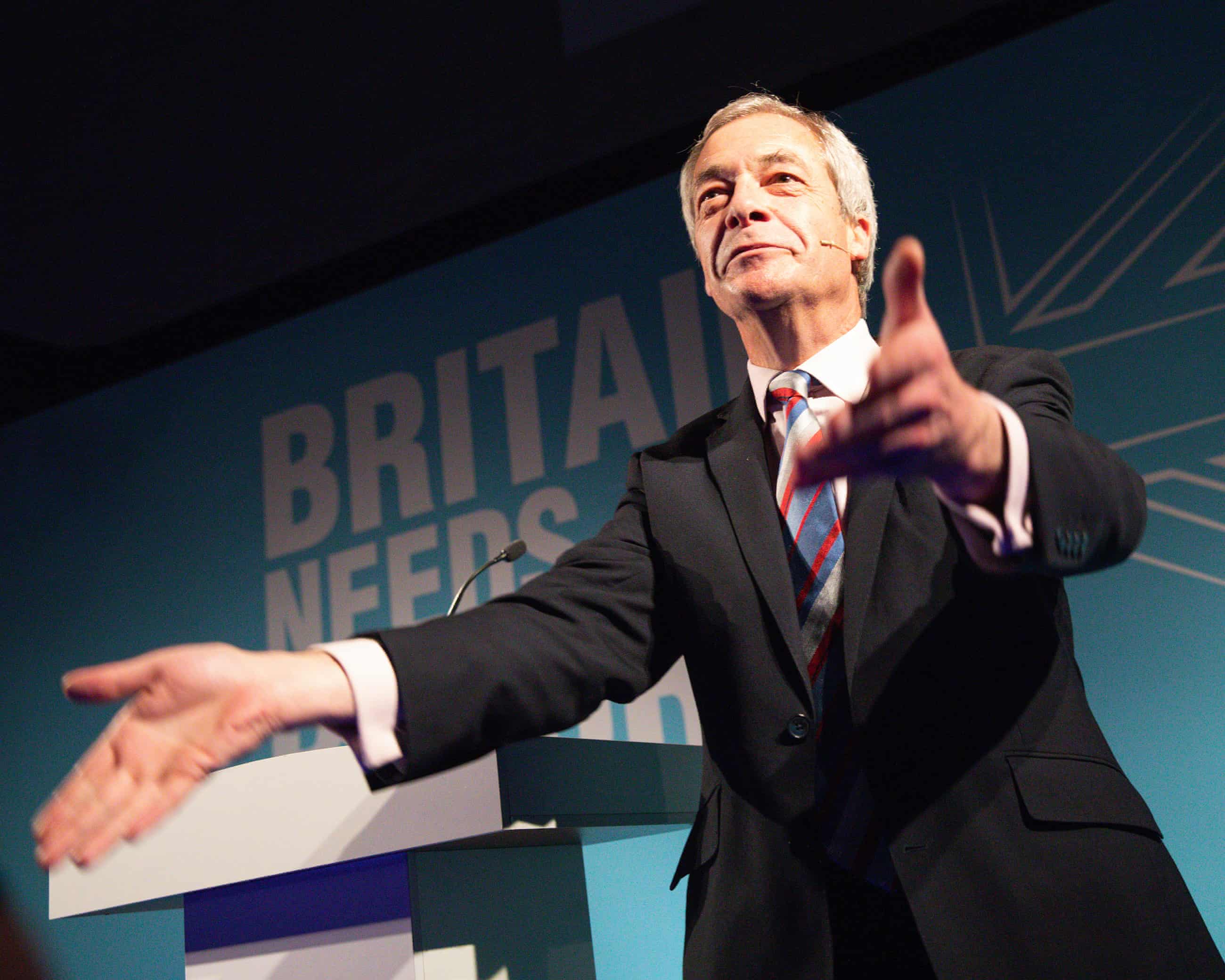
When reality bites: the rapid rise and chaotic fall of Reform UK in Cornwall
Resignations, suspensions and infighting lead to party losing crown of highest number of seats in the county“I know whenever I come back here next,” Nigel Farage told a jubilant crowd of hundreds in a leisure centre in Redruth, “Reform UK will become a dominant force, not just in Cornwall politics, but in British politics.”That was in February and when the local elections arrived three months later it appeared Farage’s prophecy was in part coming true – Reform took 28 seats on Cornwall council, the highest number of any party.But during his speech at Carn Brea leisure centre, Farage also warned his rapturous supporters “we have to convert theory into reality” – and reality in Cornwall is now biting.Six months on from the local elections – after which Reform was unable to form an administration, leaving the Liberal Democrats and independents to set up a ruling coalition – the party’s presence in the county is in disarray following weeks of resignations, suspensions and infighting that mean Reform UK no longer holds the highest number of seats in the authority.Critics say that along with the chaos in the Reform-led council of Kent, the farcical scenes in Cornwall, where Reform act as the official opposition are further evidence that the party is not capable of delivering beyond a protest vote
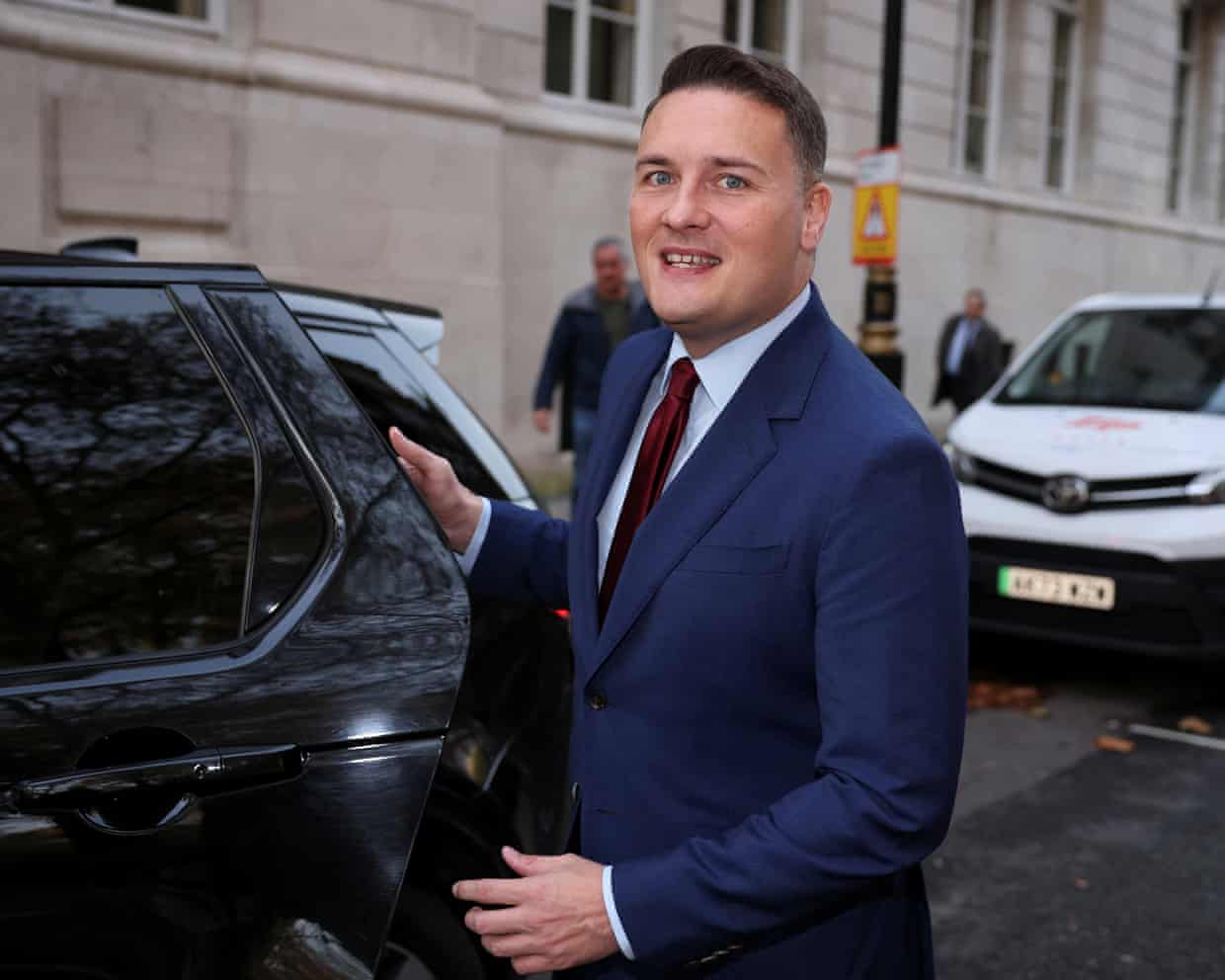
Wes Streeting accused of ‘chaotic and incoherent approach’ to NHS reform
Wes Streeting has been accused of taking a “chaotic and incoherent approach” to reforming the NHS, which makes it unlikely the government will hit its own targets, according to a damning report by the Institute for Government (IfG).The report praises elements of how the health secretary has managed the health service in his first year in office, including improving performance and staff retention in hospitals. Thepay settlement he reached with resident doctors last year avoided a winter plagued by NHS strikesBut it also criticises significant aspects of his performance, including the way he handled the abolition of NHS England and his lack of action to stem the exodus of senior GPs.The findings threaten to puncture Streeting’s reputation after a turbulent week during which he was forced to deny accusations from allies of Keir Starmer that he was lining up a leadership challenge against the prime minister.Stuart Hoddinott, the IfG’s associate director and the author of the report, said: “There have been some positive steps: performance is trending slowly upwards in hospitals, there’s been a genuinely large increase in GPs and the rate at which hospital staff are leaving their jobs is the lowest on record outside the pandemic
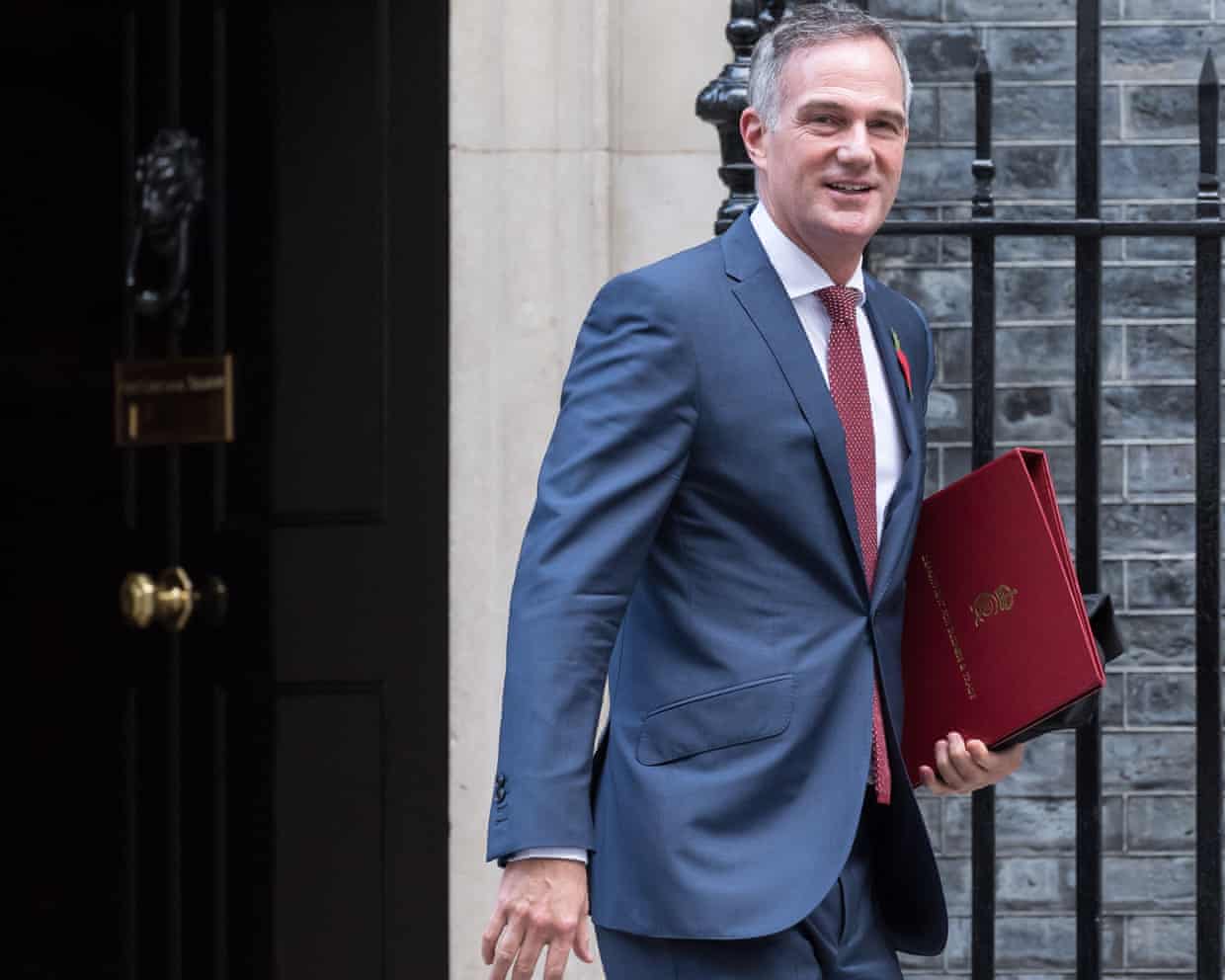
Nigel Farage is today’s Enoch Powell and his appeal down to slow economy, says minister
Nigel Farage is “today’s incarnation of the politics of Enoch Powell”, the business secretary, Peter Kyle, said at the Co-operative party conference.Kyle described Reform UK as “far right”, while stressing that boosting economic growth was needed to “build an economy and a politics that people can trust to deliver for themselves, their families and their communities”.He told the conference: “The truth is that without securing higher, sustained economic growth, reconnecting people and politics, generating trust in the potential of democracy and importance of good government becomes almost impossible.“And the appeal of the parties of the far right – with their dogma of disruption, division and despair – it becomes, too, alluring.”Kyle added: “We see it today with Reform, just as we did in previous times with the National Front and the British National party

‘They all think Keir is done’: how push to protect Starmer’s job backfired spectacularly
If there’s one thing the Labour party can agree on this week, it is that efforts by Keir Starmer’s allies to shore up his position backfired spectacularly.By briefing journalists that he would face down any challenge and accusing Wes Streeting of leading an advanced plot to overthrow him, figures around the prime minister managed only to expose the weakness of his position.The sharks were already circling – there is no shortage of senior Labour politicians convinced they can do a better job of running the country. And the botched briefing operation on Tuesday night was proof to many MPs that Starmer is leading an ineffectual No 10 operation careering towards a crushing defeat in Scotland, Wales and English local councils next May.This impression solidified on Friday when Downing Street ripped up its carefully trailed plans to increase income tax in the budget – a move seen by others in government as the latest “panicked” attempt to protect Starmer’s position
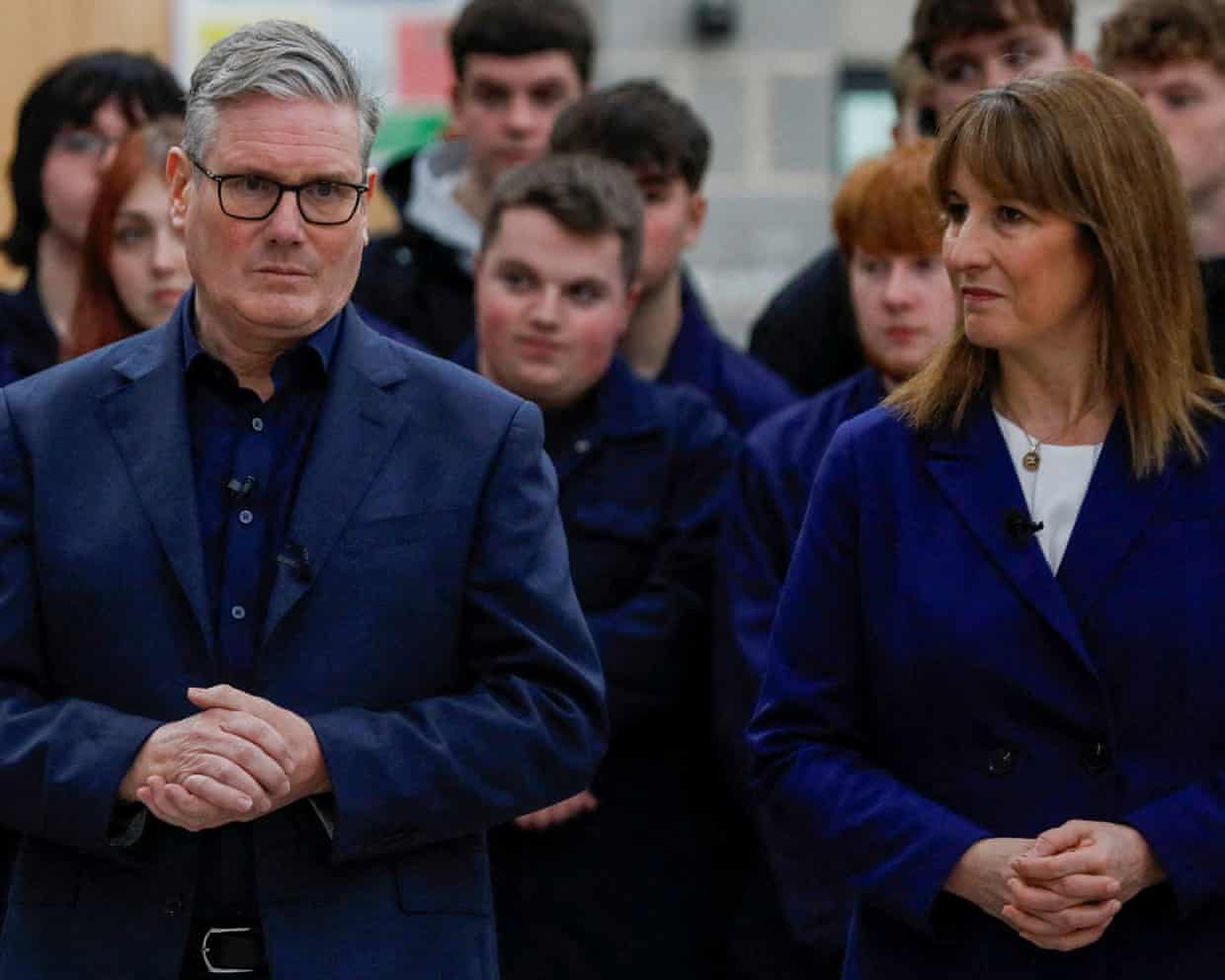
Treasury won’t cut threshold for higher rate income tax, say sources – UK politics live
This is from Pippa Crerar, the Guardian’s political editor, on where we stand this morning after all the fallout from the budget income tax U-turn. She confirms that sources are now ruling out cutting the thresholds for paying higher rates of income tax.She says government insiders claim the change is all down to better-than-expected fiscal forecasts, and that Labour opposition to the proposal was not a factor.Where we are on budget after revelation Rachel Reeves will no longer hike income tax rates- Treasury confirms that stronger than expected OBR forecasts means fiscal gap is closer to £20bn than previously speculated £30-£40bn. Reeves also wants headroom of around £15bn in addition

MP Adnan Hussain quits Your Party over ‘persistent infighting’
The leftwing Your Party led by Jeremy Corbyn and Zarah Sultana has had a major split after another independent MP involved, Adnan Hussain, quit because of “persistent infighting and a struggle for power” in the organisation.The departure of the Blackburn MP, who is the secretary of the limited company behind Your Party, is another blow after renewed disagreements between Sultana and Corbyn, this time over the handover of membership levies.Hussain was one of four independent MPs who, along with Corbyn, signed a Your Party statement on Thursday night accusing Sultana of unnecessary delay in passing on £850,000 in donations, a move that infuriated Sultana.On Friday afternoon, Hussain said via X he had spent recent months reflecting on his role in an organisation he had believed would be based on “a commitment to equality, justice and anti-racism”.He said: “Regrettably, the reality I encountered has been far from this vision

Benjamina Ebuehi’s recipe for apple, brown butter and oat loaf | The sweet spot

Kids have a wobble in the face of rabbit jelly | Brief letters

Think autumn, think Piedmont – wine from ‘the foot of the mountain’

‘I’m now a one-issue voter’: US shoppers fear Italian pasta tariff will cause shortage

Jimi Famurewa’s recipe for puff-puff pancakes

Polpa position: budget tinned tomatoes score well in Choice taste test